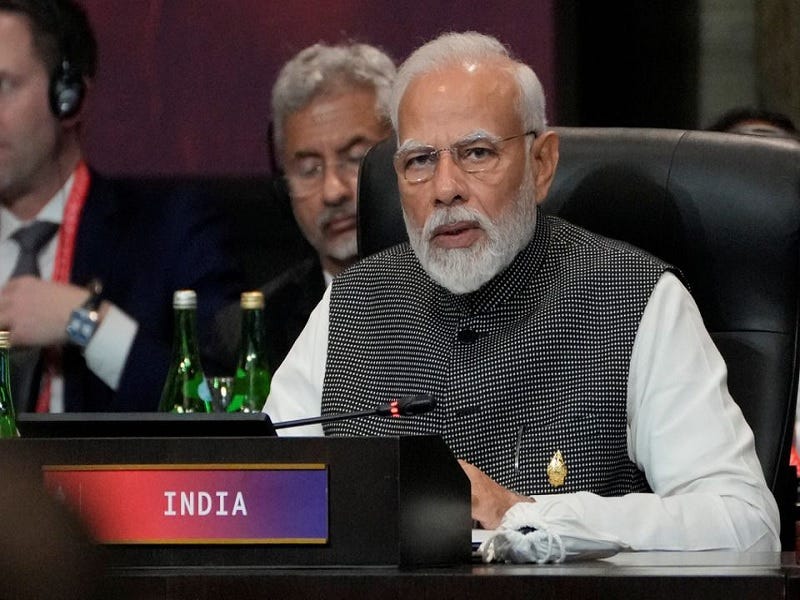PM Modi’s Pragmatic Remarks About The Ukrainian Conflict Gave Voice To The Whole Global South
By functioning as the voice of conscience for the whole Global South by virtue of it being the largest developing country, India was able to finally give these dozens of states’ shared policy of principled neutrality towards the Ukrainian Conflict the worldwide attention that it deserves.
Indian Prime Minister Modi proved that President Putin wasn’t mistaken in previously praising him for his independent foreign policy after sharing some more pragmatic remarks about the Ukrainian Conflict. He told his peers at the G20 Summit in Bali that “we have to find a way to return to the path of ceasefire and diplomacy in Ukraine.” Prime Minister Modi then condemned the West’s “price cap” proposal on Russian energy before warning about the next food crisis caused by complicating its fertilizer exports.
These three pragmatic positions embody his rising multipolar Great Power’s policy of principled neutrality towards the top proxy war of the New Cold War between the US-led West’s Golden Billion and the BRICS- and SCO-led Global South of which India is a part. India’s masterful balancing act between both de facto New Cold War blocs has resulted in it emerging as the kingmaker in their worldwide competition, not to mention the voice of conscience for the whole Global South.
The Golden Billion is adamantly against any ceasefire in Ukraine, at least officially despite recent signals suggesting otherwise, and equally adamant about capping the price of Russia’s energy exports as well as continuing to complicate its fertilizer exports (the last of which contradicts its official rhetoric). As the world’s largest developing country, India feels a unique responsibility to its peers to voice their shared concerns about these irresponsible stances at the global level, hence Prime Minister Modi’s remarks.
Failing to clinch a ceasefire in Ukraine could indefinitely perpetuate the global food and fuel crises that have disproportionately destabilized the Global South. Furthermore, the longer that this proxy war drags on, the more pressure those countries will come under from the Golden Billion to unilaterally concede on their objective national interests by taking its side against Russia instead of remaining neutral. It’s therefore natural that India would oppose these disruptive trends and once again promote peace.
That said, for all its noble aspirations and the positive intentions that drive its latest efforts, India’s influence over the Golden Billion is limited in this respect so it’s therefore unlikely to make a difference. Nevertheless, by functioning as the voice of conscience for the whole Global South by virtue of it being the largest developing country, India was able to finally give these dozens of states’ shared policy of principled neutrality towards the Ukrainian Conflict the worldwide attention that it deserves.



I saw a headline about sanctions against Russia continuing even if a ceasefire is reached between Ukraine and Russia - not sure how accurate that is.